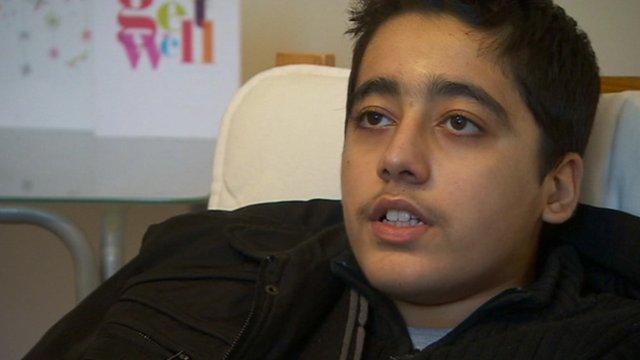Student shot by Taliban is Oxford debating club president
- Published
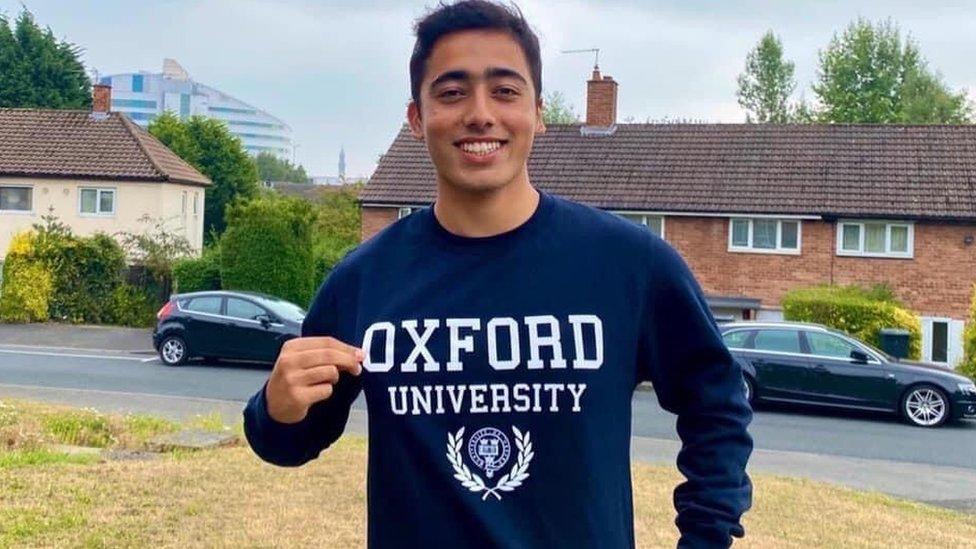
Ahmad Nawaz said he was "extremely proud" to go to Oxford University
A Pakistani student who survived a terrorist attack on his school has become president of the Oxford Union debating society.
Ahmad Nawaz was seriously injured in the attack in Peshawar in December 2014, in which his brother and 130 other children died.
In 2020 he earned a place at Oxford University to study Philosophy and Theology at Lady Margaret Hall.
The 21-year-old said: "It's been a very tough journey."
Mr Nawaz was 14 when militants from the Pakistani Taliban carried out a massacre at the army-run school in the north-west area of Pakistan. In total 141 people died, including his brother Haris.
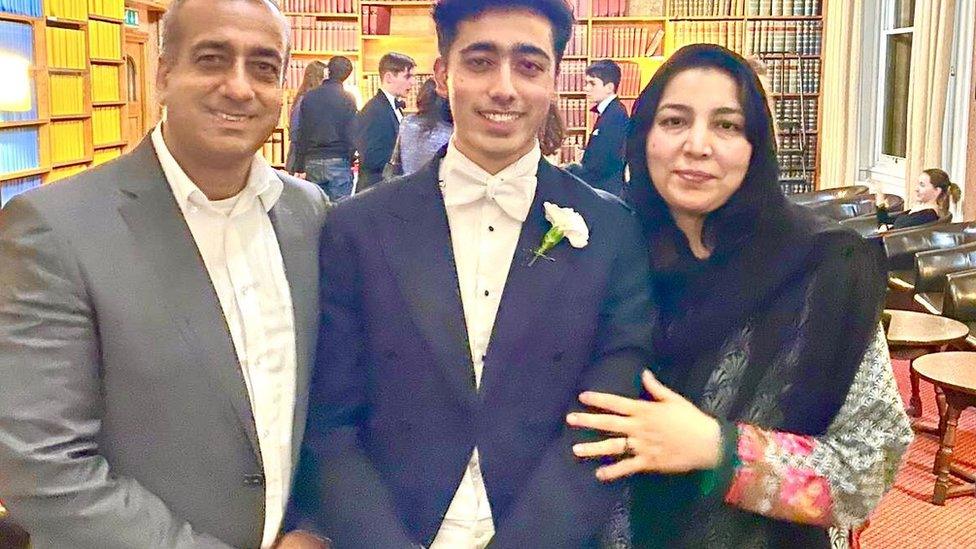
Mr Nawaz said he was "extremely grateful" for his parents' support
Although he was shot in the arm and in pain, Mr Nawaz told the BBC at the time he "played dead to survive the attack".
He spent weeks in hospital before being brought to Birmingham for emergency surgery at the Queen Elizabeth Hospital.
Mr Nawaz remained in the city and attended King Edward's school in Edgbaston.
He said he was "extremely proud" of going on to Oxford.
"I feel like this is a success not only for myself but for all the other people who got shot in that attack," he said.
Being elected as the university's society president, he added, was "extremely emotional".
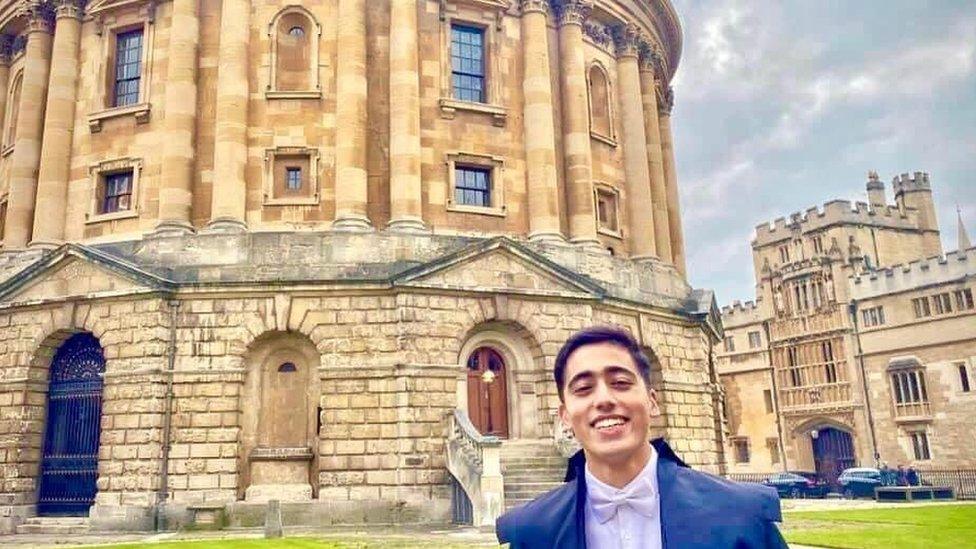
Being elected debating society president was "surreal", he added
"It was a shock in the sense that I was in disbelief at the result," he said.
"I come from a background where so much has happened in last six years of my life, points where I didn't think I would be at this university, but being elected president is a surreal experience which still hasn't sunk in.
"Your life will pick back up and if you are determined to make a difference then do something."
Mr Nawaz dedicates much of his spare time to his campaign for education and peace, visiting schools to talk about his experience and to encourage anti-terrorism and anti-radicalisation in children.

Follow BBC West Midlands on Facebook, external, Twitter, external and Instagram, external. Send your story ideas to: newsonline.westmidlands@bbc.co.uk, external
Related topics
- Published28 April 2017
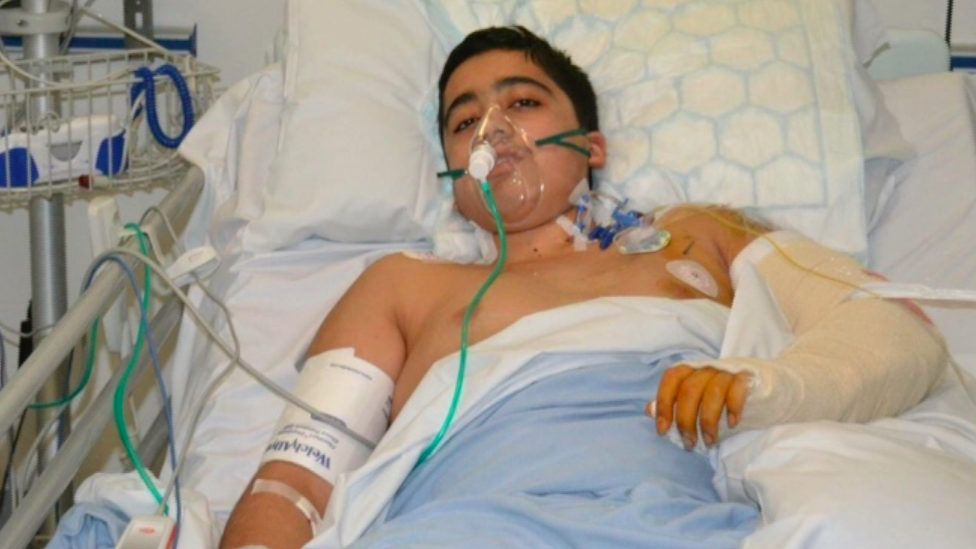
- Published20 March 2015
